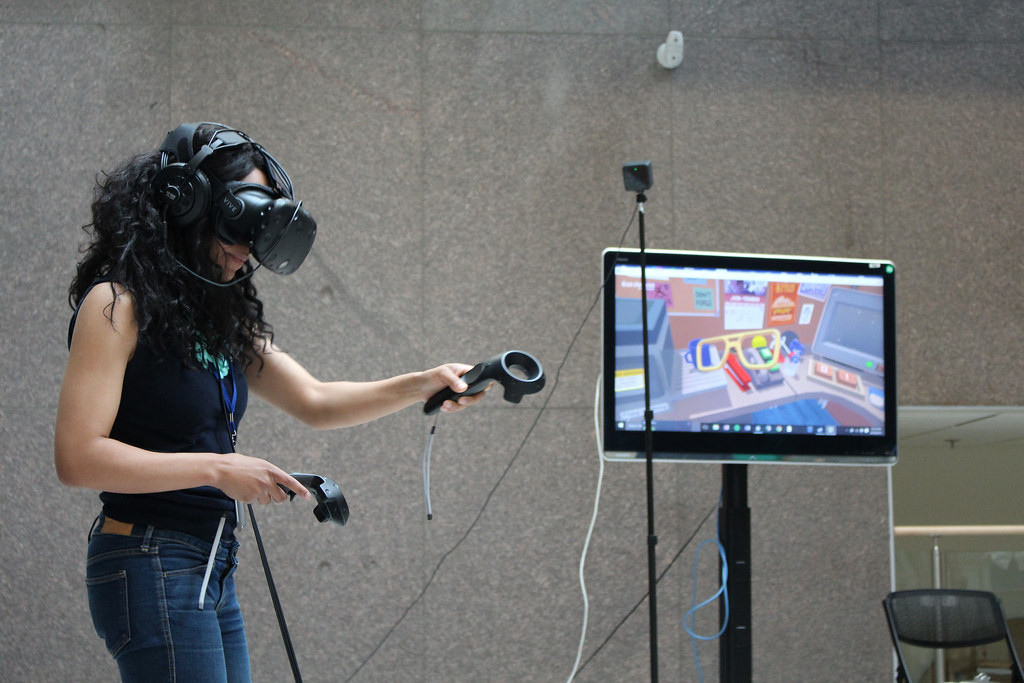Revolutionizing the Gaming Experience: The Unstoppable Rise of Virtual Reality
- May 12, 2023
- 336

In the last few years, virtual reality (VR) has made an immense impact on the gaming industry, transforming it from a niche market to a mainstream phenomenon. With the release of high-quality VR headsets such as the Oculus Rift, HTC Vive, and PlayStation VR, gamers now have access to an entirely new level of immersion and interactivity that was once thought to be the stuff of science fiction.
The impact of virtual reality on the gaming industry cannot be understated, as it has revolutionized the way games are designed, played, and experienced by millions of users around the world. In this article, we will explore the many ways in which VR has influenced the gaming industry and what the future may hold for this exciting technology.
Enhancing Game Design and Development
One of the most significant impacts of virtual reality on the gaming industry is the way it has changed the process of game design and development. In the past, game designers were primarily focused on creating engaging and visually appealing 2D and 3D environments that could be experienced on a flat screen. However, with the advent of VR, designers now have the opportunity to create fully immersive, 360-degree worlds that players can physically interact with, often using motion controls or other body-tracking technologies.
In order to create these immersive virtual worlds, game developers must consider a wide range of factors, such as realistic physics, accurate spatial audio, and intuitive user interfaces. These elements are crucial for creating a believable and engaging virtual reality experience, as they help to create a sense of presence and immersion for the player.

Additionally, VR has also pushed the boundaries of game storytelling, as it allows for a more intimate and personal connection between the player and the game world. This has led to the rise of narrative-driven VR experiences, where players can explore richly detailed environments and interact with compelling characters in a way that was never possible before.
Transforming the Gaming Experience and User Interaction
Virtual reality has fundamentally transformed the gaming experience by providing players with a level of immersion and interactivity that simply cannot be achieved through traditional gaming platforms. With VR, players are no longer just passive observers but rather active participants in the game world, able to physically interact with their surroundings and engage with the environment in a more natural and intuitive way.
One of the most significant advancements in user interaction within VR gaming is the use of motion controls and body-tracking technologies. These systems allow players to use their hands, arms, and even their entire body to interact with the virtual environment, providing a much more immersive experience than traditional game controllers. By giving players the ability to physically interact with their surroundings, VR gaming has opened up new possibilities for gameplay mechanics and experiences that were previously unimaginable. From wielding a sword in a medieval fantasy game to reaching out and grabbing objects in a futuristic sci-fi adventure, virtual reality has taken gaming to a whole new level of interactivity and immersion.
Expanding the Market and Influencing the Future of Gaming
As virtual reality continues to gain popularity and become more accessible to consumers, it is having a profound impact on the gaming market as a whole. With the release of affordable and high-quality VR headsets, more and more people are experiencing the incredible potential of this technology, leading to a significant growth in the VR gaming market. According to a recent report by Grand View Research, the global virtual reality gaming market size was valued at USD 13.5 billion in 2020 and is expected to grow at a compound annual growth rate (CAGR) of 25.8% from 2021 to 2028.

As the market for VR gaming continues to expand, it is likely that we will see even more innovative and groundbreaking games being developed for this platform. Furthermore, the success of virtual reality in the gaming industry has also inspired other industries to explore the potential of this technology, leading to the development of VR applications for education, healthcare, training, and more. Ultimately, the impact of virtual reality on the gaming industry is just the beginning, as this technology continues to revolutionize the way we experience and interact with digital worlds.
The Future of Virtual Reality in Gaming
The impact of virtual reality on the gaming industry has been nothing short of extraordinary, and it is clear that this technology is here to stay. As VR continues to evolve and become more advanced, we can expect to see even more immersive, interactive, and innovative gaming experiences being developed for this platform. Furthermore, the success of VR in gaming is likely to inspire other industries to explore the potential of this technology, leading to a wide range of new and exciting applications across various sectors.
In the coming years, we may see even more advancements in VR technology, such as improved graphics, haptic feedback systems, and more intuitive user interfaces. These advancements will continue to push the boundaries of what is possible in virtual reality gaming, providing players with even more immersive and engaging experiences. Ultimately, the future of virtual reality in gaming is incredibly bright, and the impact of this technology on the industry will undoubtedly continue to be felt for many years to come.